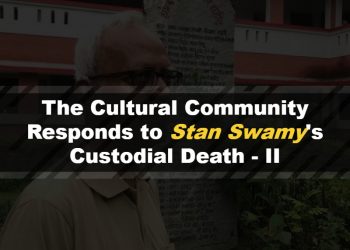Citizens for Justice and Peace (CJP), has filed a writ petition in the Supreme Court challenging the constitutional validity of the Uttar Pradesh Prohibition of Unlawful Conversion of Religion Ordinance, 2020 and the Uttarakhand Freedom of Religion Act, 2018, asking to strike down the laws passed by Uttarakhand and Uttar Pradesh as un-constitutional.

CJP, a human rights organisation with a long history of safeguarding the rights and interests of citizens, in the courts and beyond, felt compelled to move the top court since both the Uttarakhand Act and the Uttar Pradesh Ordinance places a burden on individuals to justify their personal decisions to the State authorities throttling their Right to Life and Personal Liberty, Dignity, Freedom of Conscience and Choice. The law also stands in contravention of the secular fabric of our nation. Within weeks of the law being enacted in Uttar Pradesh, violence and intimidation have been meted out to adult couples in the state of Uttar Pradesh.
The illusion of ‘Love Jihad’ has led violence and intimidation by police and non-state actors. The ‘Love Jihad’ laws legitimise un-constitutional, anti-minority and misogynistic beliefs, and help further the hateful, communal agenda of extremists. CJP is challenging these laws as they impinge upon the privacy, freedoms and autonomy of consenting adults. Denounce Love Jihad and keep #LoveAzaad.
CJP secretary and human rights defender Teesta Setalvad explained, “Such laws need a challenge. Already the spectre of ‘Love Jihad’ an illusory concept has caused unimaginable misery, led to violence and intimidation by police and non-state actors. ‘Laws’ that impinge on privacy, freedoms, autonomy and violate principles of equality and non discrimination have no place in 21st century ‘free India’. More than anything else, they are anti-women as they discriminate against women denying them all agency.”
The petition submits before the Supreme Court that both enactments are bad in law and substance . Moreover, they need to be critically examined and addressed on the grounds of:
- Right to Personal Liberty and Autonomy
- Right to Freedom of Choice of Adults
- Right to Privacy
- Right to Conscience
- Right against Discrimination
- Constitutional Obligations and Powers of Governors
- Secularism
- Bhimrao Ramji Ambedkar’s ideology
- State incentives for inter faith marriages
- Law Commission Reports
- International Law
- Evolution and Interpretation of Rights in Constitutional Courts
CJP’s petition also explores and elaborates on the concept of “Love Jihad” that has been spun around in India against the principles of pluralism and diversity in the society. The plea further states that, “The concept of Love Jihad is an illusory construct based on rhetoric to promote divisiveness in society, generate permanent suspicious attitudes towards Islam and the Muslim community and create enmity between communities and breach harmony. Love Jihad is not a notion that has developed over night and that it has been the constant effort of the sectarian Government to place extra constitutional trust at the hands of the Police.”
The petition cites detailed grounds for this challenge. Issues raised detail issues of privacy, extra-Constitutional powers to police and non-state actors, the fact that they violate the non-negotiable tenets of secularism, equality and non-discrimination. Both the Act and Ordinance are inherently anti-women and discriminate against women, giving them no agency whatsoever and are therefore bad in law and substance. The CJP petition makes a strong case for both– the Uttarakhand Freedom of Religion Act (2018) and the Uttar Pradesh Prohibition of Unlawful Conversion of Religion Ordinance, 2020 –to be declared anti-Constitutional and struck down.
CJP’s writ petition under Article 32 of the Constitution of India has been filed through Advocate Ms Tanima Kishore.
The entire petition may be read here:




